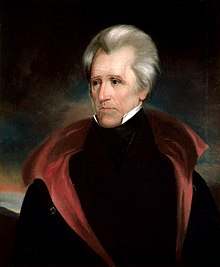📖 Presidential Profile
Comprehensive overview of leadership, policies, and historical significance
📋 Biography & Political Journey
From Orphan to War Hero
Andrew Jackson’s early life was marked by tragedy and hardship that shaped his fierce, combative personality. Born in the Carolina backcountry in 1767, Jackson was orphaned by age 14 after losing his parents and brothers during the Revolutionary War. As a teenager, he was captured by British forces and bore a permanent scar from a British officer’s sword after refusing to clean the officer’s boots. This experience instilled in Jackson a lifelong hatred of aristocracy and a fierce devotion to American independence and common people. His rise from orphaned poverty to national prominence embodied the American dream and made him a powerful symbol for ordinary citizens.
Jackson’s military career culminated in his stunning victory over the British at the Battle of New Orleans in January 1815, which made him a national hero despite occurring after the War of 1812 had officially ended. His tactical brilliance in this battle, where American forces suffered only 71 casualties while inflicting over 2,000 on the British, established Jackson as the greatest American military hero since George Washington. Jackson also gained fame (and notoriety) for his campaigns against Native American tribes, particularly his victory over the Creek Nation at the Battle of Horseshoe Bend in 1814.
Jackson’s presidency marked a fundamental shift in American democracy, as he was the first president to present himself as the direct representative of “the common man” against established elites. His supporters created the first truly modern political party, complete with newspapers, local organizations, and mass rallies. Jackson’s democratic philosophy held that ordinary citizens were capable of self-governance and that educated elites had no special claim to political power. He expanded voting rights, opposed special privileges for the wealthy, and consistently argued that “the majority is to govern.”
The Bank War and Constitutional Crisis
Jackson’s most controversial presidential act was his destruction of the Second Bank of the United States, which he viewed as a corrupt institution that benefited wealthy elites at the expense of ordinary Americans. Despite the Supreme Court’s ruling that the bank was constitutional, Jackson vetoed its recharter and then illegally removed federal deposits from the bank, precipitating a severe economic crisis. His actions were so controversial that the Senate censured him—the only time in history a president has been formally censured. Jackson’s response was characteristically defiant: he demanded the Senate expunge the censure from its records, and his supporters eventually succeeded in doing so.
The President’s Dueling and Pet Parrot Adventures
Jackson fought in an estimated 100 duels throughout his life, carrying bullets in his body from various encounters that caused him constant pain. His most famous duel occurred in 1806 when he killed Charles Dickinson over a horse racing bet and an insult to Jackson’s wife Rachel. Dickinson shot first and hit Jackson near the heart, but Jackson calmly took aim and killed his opponent with a single shot. At the White House, Jackson owned a pet parrot named “Poll” who had learned to swear from listening to Jackson’s colorful language. When Jackson died in 1845, Poll had to be removed from the funeral service because the bird kept shouting profanities at the mourners. Jackson also kept a 1,400-pound block of cheese in the White House lobby, which he invited the public to help him eat during a massive party that left the executive mansion reeking of cheese for weeks.
Humor & Jokes
Assassination Attempt
Someone tried to assassinate Jackson, but both pistols misfired. Even guns were afraid of Old…
Read More →Greatest Wins
🇺🇸 Preservation of the Union During the Nullification Crisis
Jackson's firm stance against South Carolina's nullification doctrine preserved federal authority and prevented early secession,…
Read More →Epic Fails
🏛️ Destruction of the Second Bank of the United States
Jackson's war against the national bank triggered economic panic and deepened political divisions over federal…
Read More →